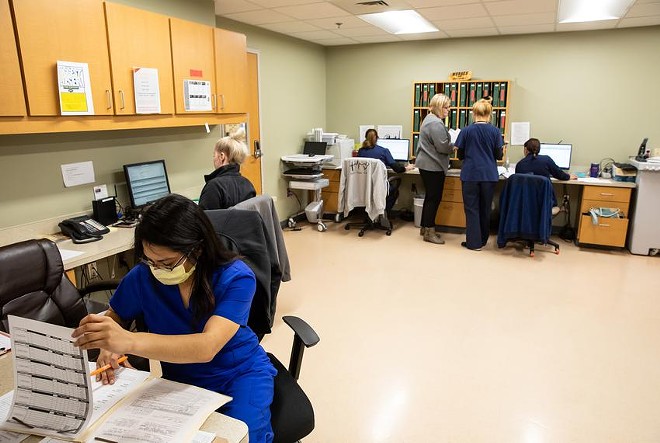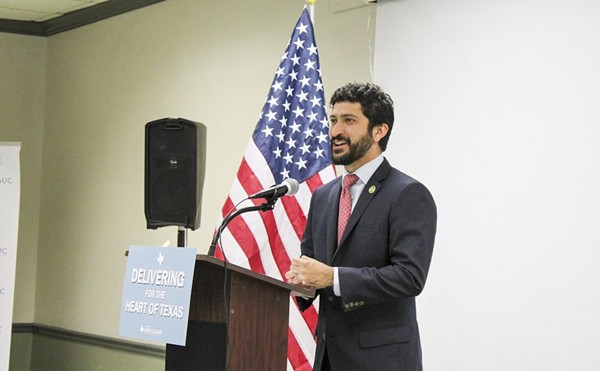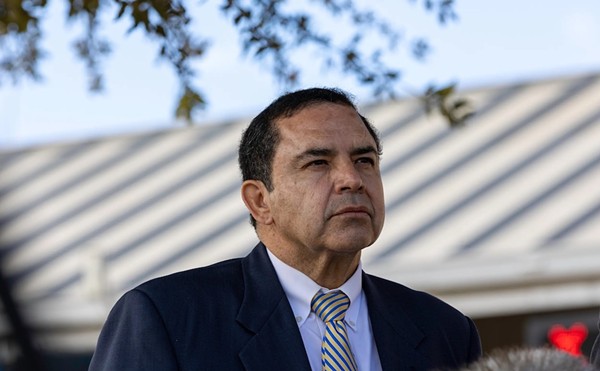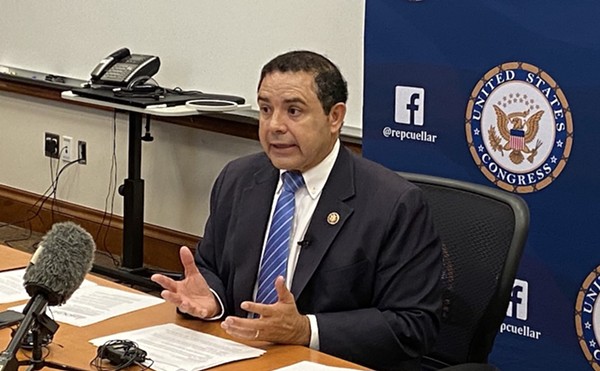
But it’s not a permanent fix, and the state still has to work out solutions for uninsured Texans, the state of rural hospitals and other issues.
Texas is one of a dozen states that hasn’t expanded its Medicaid program under the federal Affordable Care Act. It’s a financially attractive federal match — the state would get roughly 90 cents for every dime invested — that has been the bane of Republicans in Texas from the moment of its inclusion in what some of them still refer to as Obamacare.
It’s also the state with the highest number of uninsured residents: 4.9 million, according to the latest American Community Survey data for 2020 from the U.S. Census Bureau. That was 17.3% of the population — also the highest in the country.
Texas found a way to bring in more Medicaid money without signing up for expansion. As the Texas Tribune’s Karen Brooks Harper described it, “Texas had come up with its own mechanism known as the Local Provider Participation Funds, in which private hospitals set up taxing districts and sent that money through local and state governments to the U.S. Centers for Medicare and Medicaid Services.”
CMS halted those payments to Texas — about $7 million a day — in September, questioning whether the state’s scheme was legal. For now, it has decided to restore the payments, so the good news is that there is no bad news — at the moment. And it also agreed to make the decision retroactive, so all of the money denied to the state since September is now coming in.
That’s good news for hard-pressed hospitals that provide health care under Medicaid, with the caveat that CMS is still auditing the Texas Medicaid plan that makes it possible, and it could still come back and shut things down.
That so-called 1115 Medicaid waiver has brought about $30 billion in federal funds into the state for uncompensated care provided by hospitals to people who aren’t privately insured, for mental health and similar programs.
In the meantime, the state is suing to prevent the feds from cutting off the waiver.
Texas voters want to expand it. Their representatives in Austin do not.
Medicaid expansion has been proposed by legislators from both parties in every legislative session since the Affordable Care Act was passed in 2010. But a succession of state leaders have opposed it, often arguing that it would pull Texas into an expensive federal entitlement program.
Other states started with similar objections, but most have come around and expanded their Medicaid coverage. Last year, advocates argued that bringing Texas in would insure more than 1 million people who aren’t insured now, lowering the cost of treatment, pumping money into the medical economy of the state and lowering the overall cost to taxpayers. They even said it would bring $75 million to $125 million into the state budget every two years.
It’s part of a bigger health care plight for the state where slightly more than half of rural hospitals are deemed “vulnerable” by the Chartis Center for Rural Health and where the population of uninsured residents is larger than the populations of 25 states.
The momentary crisis — the federal government turning off this part of the state’s Medicaid money — is over. The health care problem remains: Nearly 5 million Texans remain uninsured, getting their medical help in the state’s expensive and inefficient workaround.
The state caught a break. But the feds remain at work, challenging the Texas waiver. Texas lawmakers thought they had a 10-year agreement, written in the last weeks of the Trump administration. It might not last another year.
The Texas Tribune is a nonprofit, nonpartisan media organization that informs Texans — and engages with them — about public policy, politics, government and statewide issues.
















